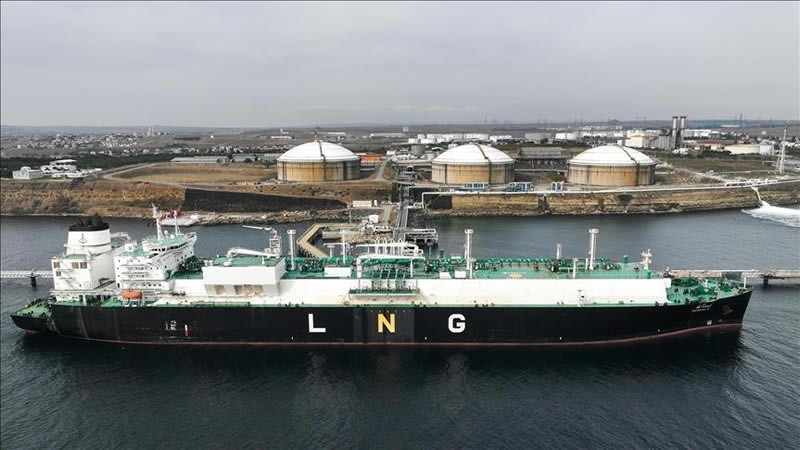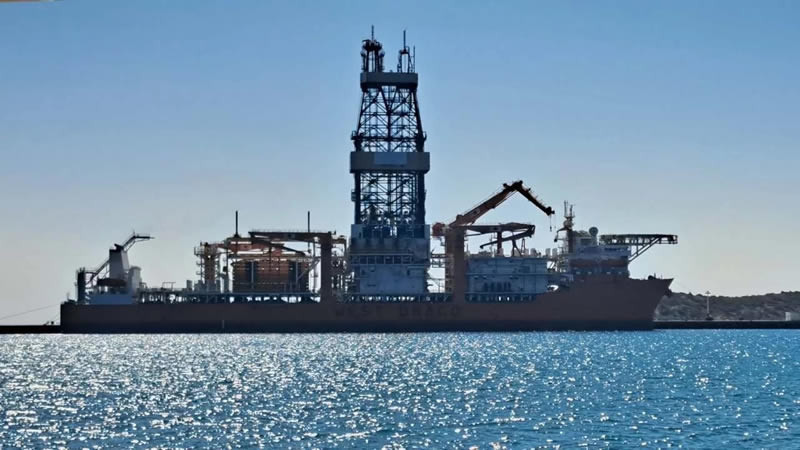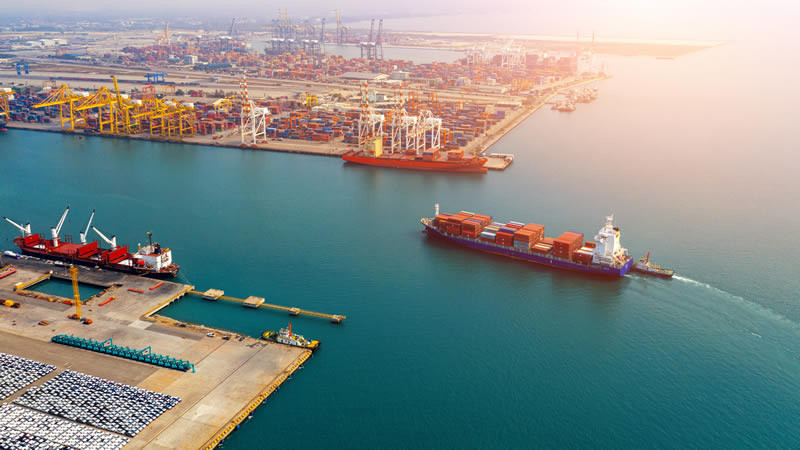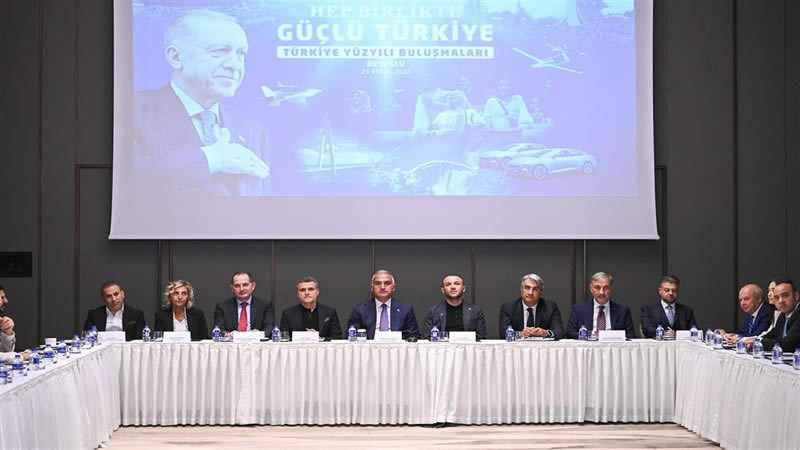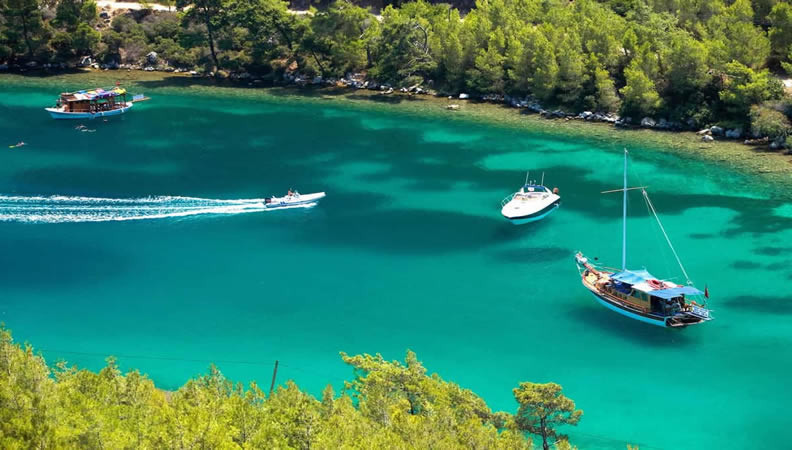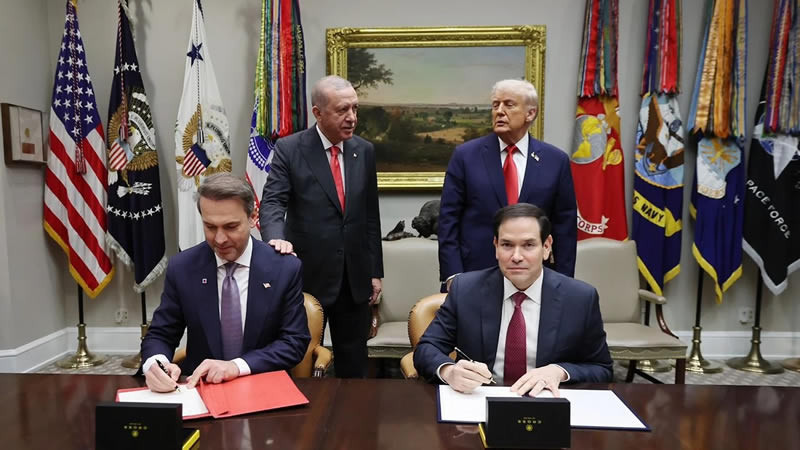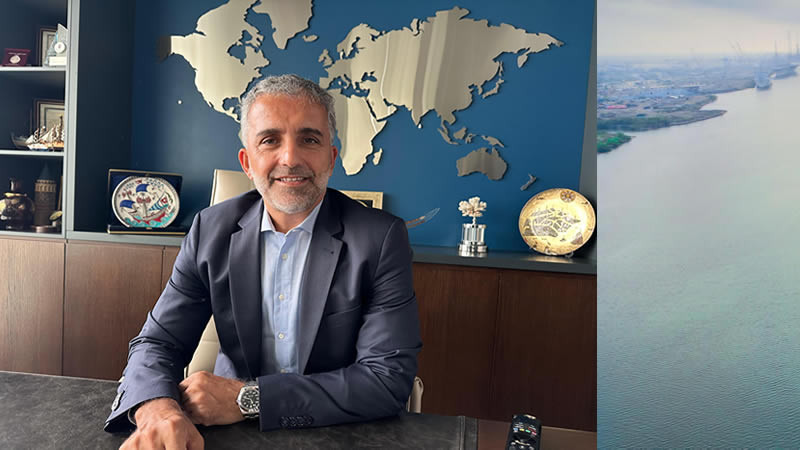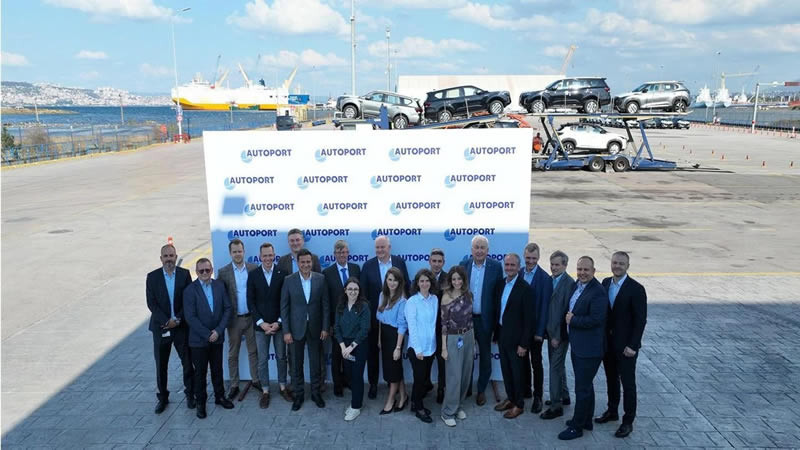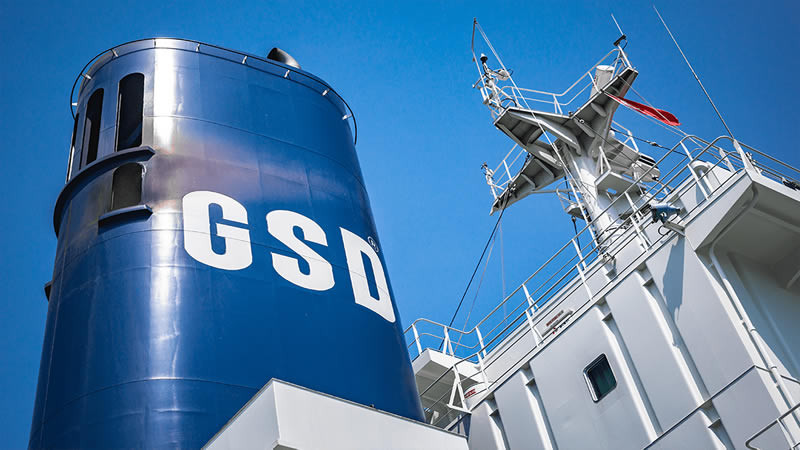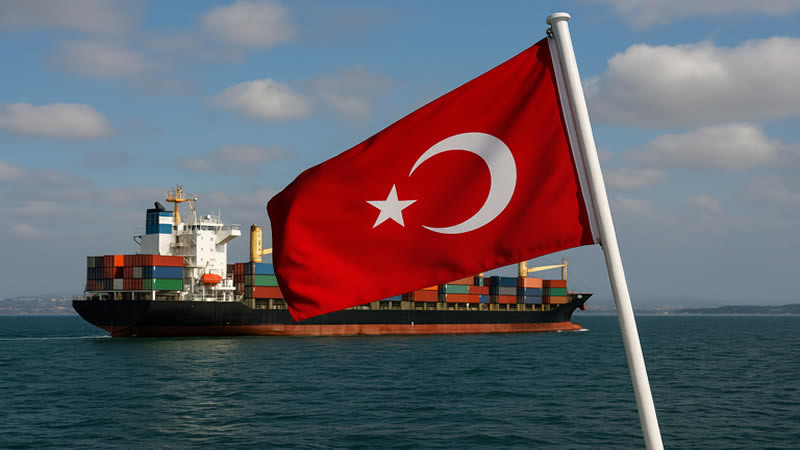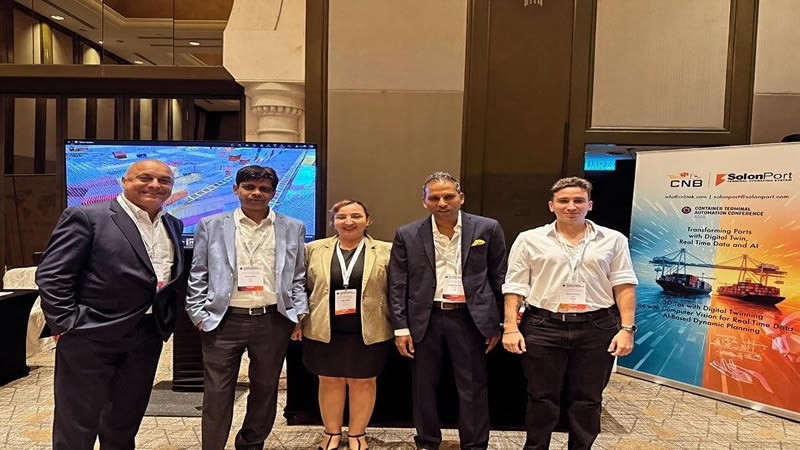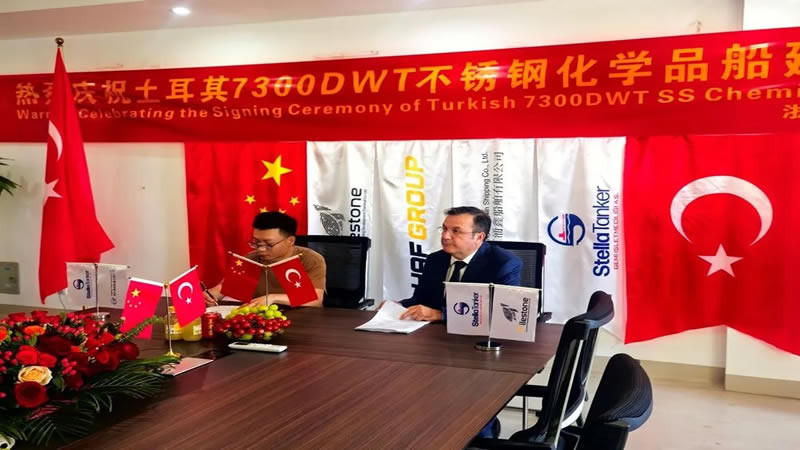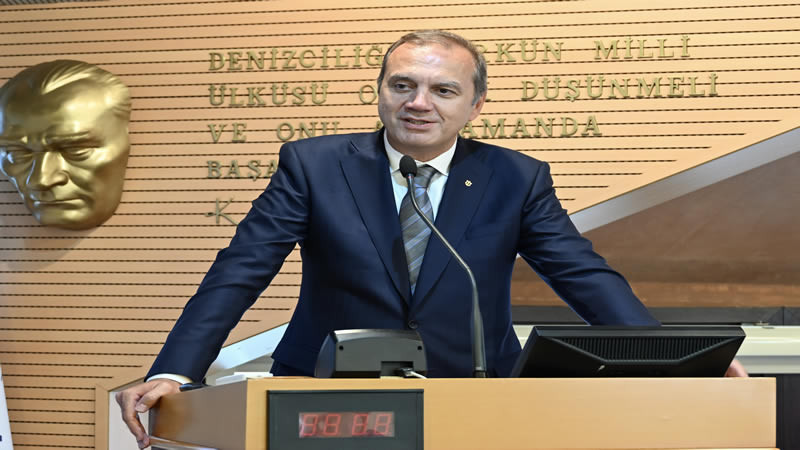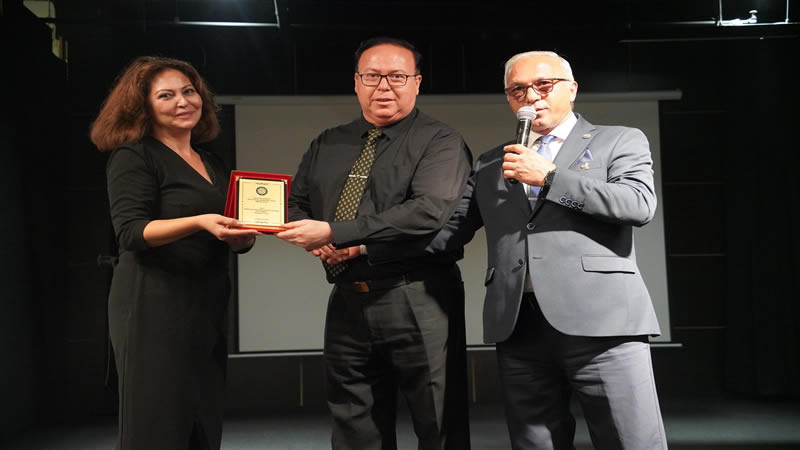The world isn’t ready for the green transition—so how can Türkiye be?
Cihan Ergenç, Chairman of the Turkish Shipowners’ Association, shared critical insights into the maritime sector’s readiness for global transformation.

. “How can we assess what Turkish maritime can achieve without having the conditions to compete internationally?” he asked, highlighting the structural challenges facing the industry.
Third Term in Office: A Leadership Transition Ahead
“I’m currently serving my third term, although I initially intended to serve only two. I’ve decided to continue for one more term, believing that a colleague will step forward as a candidate in the next cycle. Leadership should be seen as a relay race—when the time comes, we must open the way for others. Integrating younger professionals into these processes is essential. I won’t be a candidate in future terms, but I will remain actively involved in the organization. Our shared goal is to serve the industry. Today, we hold the baton; tomorrow, new leaders will take over. What matters most is that national interests and sectoral priorities continue to align.”
Global Economic Turbulence and Geopolitical Risks: Navigating Uncertainty
“As Turkish shipowners, we haven’t faced a major crisis amid global economic fluctuations and geopolitical tensions. Yes, markets have contracted and revenues declined, but the maritime sector has remained resilient. Smaller tonnage has been more affected by regional conflicts and sanctions, while larger tonnage markets have held steady. I’m hopeful that regional wars may ease by the final quarter of this year. If that happens, I expect small-tonnage markets to recover. We’ll see how quickly and strongly the markets rebound post-conflict.”
“Meanwhile, the Ministry continues to offer newbuild incentives for small-tonnage owners. But the global economy presents a different challenge. We’re witnessing a decline from historic growth rates above 5% to below 2%. Geopolitical risks are at an all-time high. The Ukraine–Russia war, the Israel–Palestine conflict, tensions in Iran and Syria, and the re-election of Donald Trump in the U.S. all contribute to growing uncertainty. The genie is out of the bottle—and no one knows where it’s headed.”
“In addition to geopolitical instability, the slowdown in economic activity is causing seasonal disruptions. The real questions are: how long will this last, and where is it headed? Hopefully, global leaders will implement sound policies to steer this turbulent period toward a more stable future.”
Law No. 2581: A Turning Point for Turkish Maritime
Law No. 2581 on the Development of the Maritime Trade Fleet and the Promotion of Shipbuilding Facilities marks a milestone for the Turkish maritime sector. The tonnage tax system is a sound approach for the health of the ecosystem and its stakeholders. While its pros and cons can certainly be debated, our course must align with the direction the global maritime industry is heading.
The tonnage tax model has been in use globally for over 25 years. For Türkiye to compete internationally, it is crucial that our system becomes globally compatible. To overcome current challenges, Türkiye must establish a fully empowered Ministry of Maritime Affairs. Without such a dedicated institution, resolving sector-specific issues from a maritime perspective remains unlikely.
We are investing significant effort to solve these problems, but when our efforts fail to yield the desired outcomes, it naturally affects our motivation. Our priority is to protect national interests while implementing projects that serve the sector. But how can we truly measure what Turkish maritime can achieve without having the conditions to compete globally? Ultimately, we must ensure free and fair competition on an international scale.
Fleet Renewal and Scrap Incentives: A Strategic Outlook
The sector’s outlook on fleet renewal and scrap incentives is generally positive. Incentive rates have recently increased, and several projects have already received approval. I’ve supported these initiatives from the beginning and believe they are both necessary and successful. I hope they continue in the coming years.
We must closely monitor global dynamics and the strategic direction set by institutions like the United Nations and IMO. The Paris Agreement has triggered economic shifts. While Trump withdrew, Russia opted out, and China remains skeptical, the European Union is leveraging this moment to renew its fleets and transition toward alternative fuels. For this system to function properly, IMO must operate under UN leadership—otherwise, it risks becoming unstable.
In Türkiye, maritime must be elevated to a national policy priority, with equal competition conditions enabling global integration. Countries like Russia, the U.S., the EU, and even Greece are taking action. India is investing $3–4 billion in its shipyards. China has long provided support. In our case, before we talk about incentives, we must first remove the barriers in front of us. Equal competition must come first. Incentives can follow when economic conditions and funding allow—but we cannot reach that stage without addressing the fundamentals.
If these barriers are lifted, Turkish maritime can make significant strides. Additional funds and resources can be generated, and the ecosystem will begin to evolve organically. Without solving the core problem, progress in other areas remains blocked.
Alternative Fuels: A Key Component of Renewal
The incentive package includes support for alternative and clean fuels, energy efficiency, software, R&D, and carbon footprint reduction. These are all essential parts of the roadmap. Regulations affect everyone, and Türkiye’s proximity to the EU makes these impacts even more direct.
The real issue is building know-how in Turkish maritime. We’re working to elevate this through seminars and workshops. Some coaster vessels need to upgrade their standards, and some shipowners must enhance their management capabilities. Continuous learning is vital. I have my own gaps too. Many small shipowners are now diving deep into the technical details. I personally provide consultancy two to three times a week.
Some shipowners have expanded their tonnage over the past 5–6 years and entered international waters. We must move beyond being just coasters. You invest where you see the light at the end of the tunnel. Adapting to change is essential. Nothing happens without knowledge. First comes education—not just diplomas, but daily learning and self-improvement.
Only then can we close the gap with those ahead of us. Isn’t that the true meaning of serving your country? If you grow, produce, and build a healthy ecosystem, you contribute meaningfully to your nation. Turkish shipowners are evolving—and so is the Turkish Shipowners’ Association.
Strategic Outlook on Turkish Maritime: Regulation, Sustainability, and Global Integration
Registry Incentives & Tax Regime
Türkiye’s current registry and tax systems are functioning, but vulnerabilities remain. The tonnage tax model, adopted by nearly 40 countries, must be legally secured and strategically structured. A clear roadmap and legal framework are essential. With proper alignment to global standards—including education, legal systems, and operational practices—Türkiye could unlock $2 billion in annual economic impact and significantly boost maritime know-how.
Green Transition Readiness
The maritime industry is governed by international law, making it unique among sectors. Yet even globally, the green transition lacks clarity. With over 14 alternative fuel types under discussion and no consensus on the fuel of the future, Türkiye—like the rest of the world—is not yet ready. Turkish shipowners are investing in R&D, including carbon capture technologies, and aim to lead rather than follow. If successful, this could mark one of the most significant industrial breakthroughs outside of defense.
Global Standards & Legal Alignment
Without resolving legal and regulatory issues—especially around crew management and social security—Türkiye cannot fully integrate into the global maritime ecosystem. Over 60 crew management firms operate locally, but lack unified standards. The government must introduce strict regulations to ensure compliance. The Turkish Shipowners’ Association is committed to supporting this transformation with a nationalistic spirit and global vision.
Automation & Digitalization
Technology adoption is essential. While AI remains a developing field, software for energy efficiency is already a must. Turkish shipowners are ahead of many global counterparts in digital partnerships. As trends evolve, so must we—through continuous learning and strategic adaptation.
Turkish-Owned Fleet Capacity
Turkish-owned fleet capacity has reached 53 million DWT, yet Turkish-flagged vessels have declined to 6 million DWT. Compared to Greece’s 400 million DWT, Türkiye has room to grow. A dedicated Ministry of Maritime Affairs is critical to unlocking this potential. With the right strategy, Türkiye could double its maritime economic footprint and position Istanbul among the world’s top three maritime hubs.
Final Remarks
As Chairman of the Turkish Shipowners’ Association, I remain fully committed to serving my country and industry. We must define a clear roadmap for Turkish maritime and work tirelessly to implement it. Our youth are the future—we must integrate them into the sector, share our knowledge, and reform education toward practical, modern learning. They should know: we stand ready to support them at every step.



